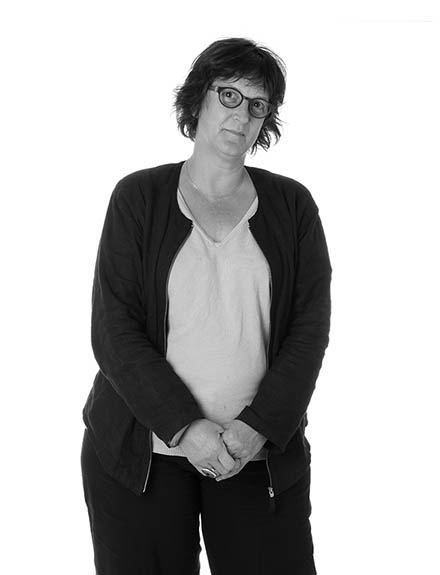| marie-hélène le ny |
|
photographist |

|
"It
is necessary to teach the history of women, of gender and of feminism
to ensure the durability of this subject and to educate new generations.
History is a key to understanding the world, its complexity and
to transmitting the objectives of equality and liberty. History
was for a long time a supporter of patriarchy, only remembering
political events and ignoring women. Gender history allows the
question of the context of relationships between men and women
and hierarchical norms of femininity, masculinity and sexualities
to be considered. Defensive and repressive, the norm – in
different eras – has always raised the threat of the non-differentiation
of the sexes to refuse equality! A mixed history needs to become
ingrained in general culture, moving away from this "black
hole" that is the issue of women and gender. There are many
historical sources to analyse and exploit concerning the history
of women.
I discovered feminism at the age of 15 and when I arrived in Paris VII in 1976, the history of women was at the centre of a volcano emerging under the leadership of Michelle Perrot. With Laurence Klejman, we decided to do a thesis together – which was quite unheard of – under her guidance on the social and political history of the feminist movement from the mid-19th century until 1914 in France. Until then, this subject was totally unexplored. The years of my thesis were exhilarating and I didn't want to give up the research, even in difficult conditions. Today responsible for research at CNRS, I query the links between gender, religions, secularity and secularisation based on this history of feminisms and women's rights. Supporting multidisciplinary research on gender seems fundamental to me and that is why I am committed to the Institut Émilie du Châtelet.” |
||
|
Florence Rochefort Historian, researcher in CNRS, Group Society Religions Secularism |
|||
|
|
|
|